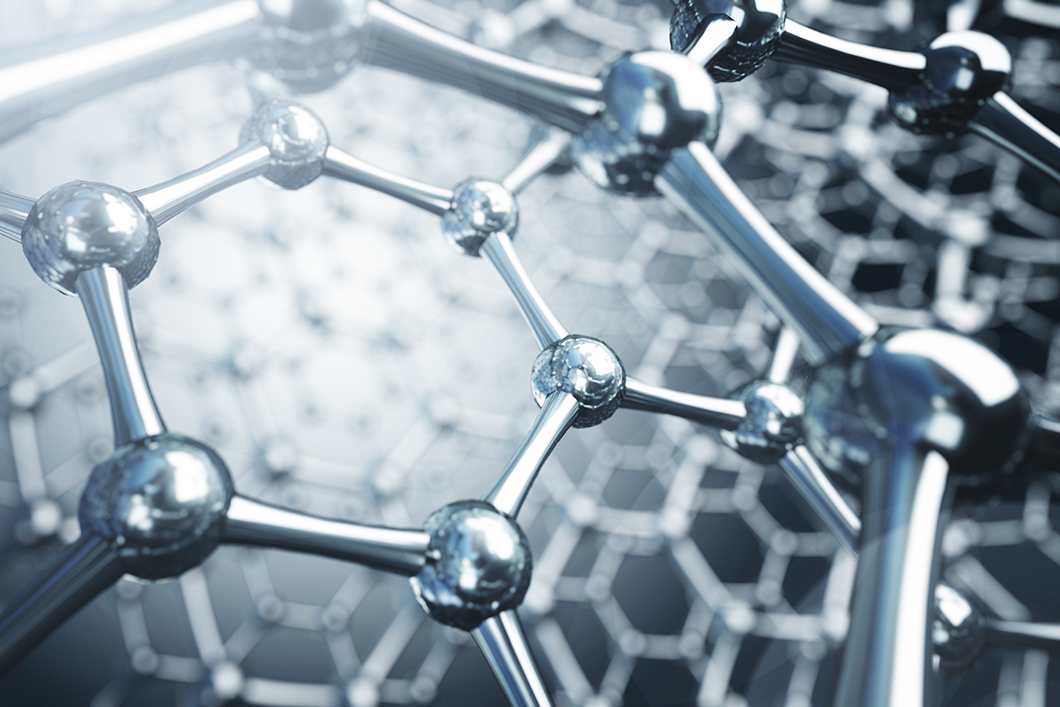
Graphene offers unique application possibilities. An EU project investigates the sustainability of the material of the future.
Source: Adobe Stock/artegorov3@gmail
Project period
01/01/2023 - 30/06/2026
Project type
EU project
Project status
Ongoing
Description
The project ACCORDs is developing an imaging-based characterization framework for the holistic assessment of graphene and similar 2D nanomaterials for the evaluation and prediction of their health and environmental risks.
Location
Bundesanstalt für Materialforschung und -prüfung (BAM)
Branch Fabeckstraße
Unter den Eichen 44-46
12203 Berlin
Source: ACCORDs
Source: BAM
Source: BAM
A tiered approach correlating imaging and non-imaging techniques for physico-chemical characterization, biological reactivity, and hazard identification will be developed. New standards and guidance documents on these new approaches, including method selection and their correlation, reporting, data sharing, indicators for ranking and benchmarking will be proposed. The ACCORDs framework for characterization will be evaluated in three selected case studies using commercial graphene.
Source: BAM
Project coordination: University of Ljubljana
Consortium: 10 international partners from Science and Industry
Funding: This project receives funding from the European Union’s Horizon Europe Research & Innovation Programme under grant agreement no. 101092796.
Within the ACCORDs project BAM will develop and test correlative approaches for the physico-chemical characterization of Graphene Family Materials (GFMs) that are practical, sensitive, and reliable, and that can be used during the production phase of GFMs and along their product-related life cycle. Basically, there is no single analytical method or a priori combination that provides a complete physico-chemical characterization of 2D nanomaterials in different matrices and along the life cycle of a related product and which at the same time can be correlated in detail with material hazard and support-safer design. For that reason, BAM will contribute with correlative imaging-based methodical approaches, including dedicated sample preparation, measurement, data processing, reporting and formats.
Methods having the potential to be used for the physico-chemical characterization of 2D nanomaterials will be assigned to different quality levels. High-throughput methods such as DLS, FTIR or SEM/EDS being more useful at the production line as well as low-throughput methods such as TEM, XPS, or Auger Electron Microscopy able to provide deeper imaging morpho-chemical information at the nanoscale will be tested.
The data generated will be prepared to benchmark the well-controlled lab-synthesized GFMs, including their use to train machine learning algorithms for correlative analysis of multi-parameter images, and their application to the commercial GFMs.
The readiness for standardisation of the new physico-chemical methodological approaches within the ACCORDs framework will be checked and discussed under the lead of BAM at the national and international “nano” standardization committees.
Partner
University of Ljubljana (SI)
The University of Birmingham (UK)
University of Turin (IT)
The University of Oxford (UK)
North-West University (ZA)
Stichting Wageningen Research (NL)
Haydale Ltd (UK)
Fundacion IDONIAL (ES)
Edelweiss Connect GmbH (CH)
Funding
Topic: HORIZON-CL4-2022-DIGITAL-EMERGING-01-3
Type of Action: HORIZON-RIA
Call: HORIZON-CL4-2022-DIGITAL-EMERGING-01
This project receives funding from the European Union’s Horizon Europe Research & Innovation Programme under grant agreement no. 101092796.


